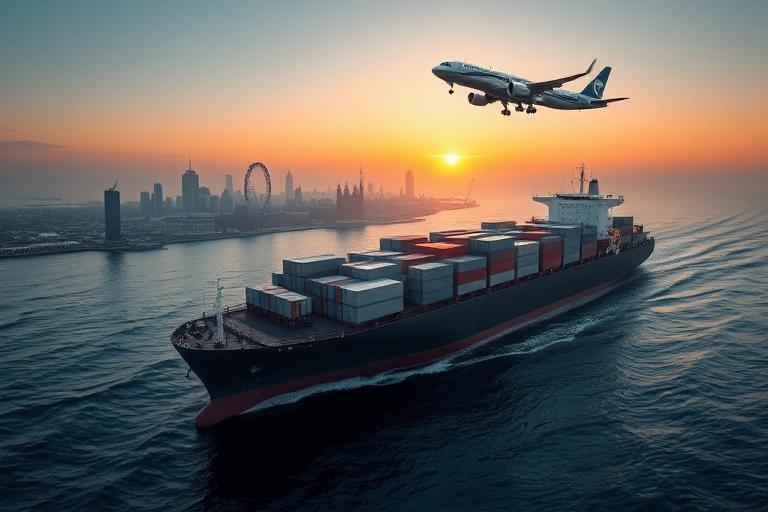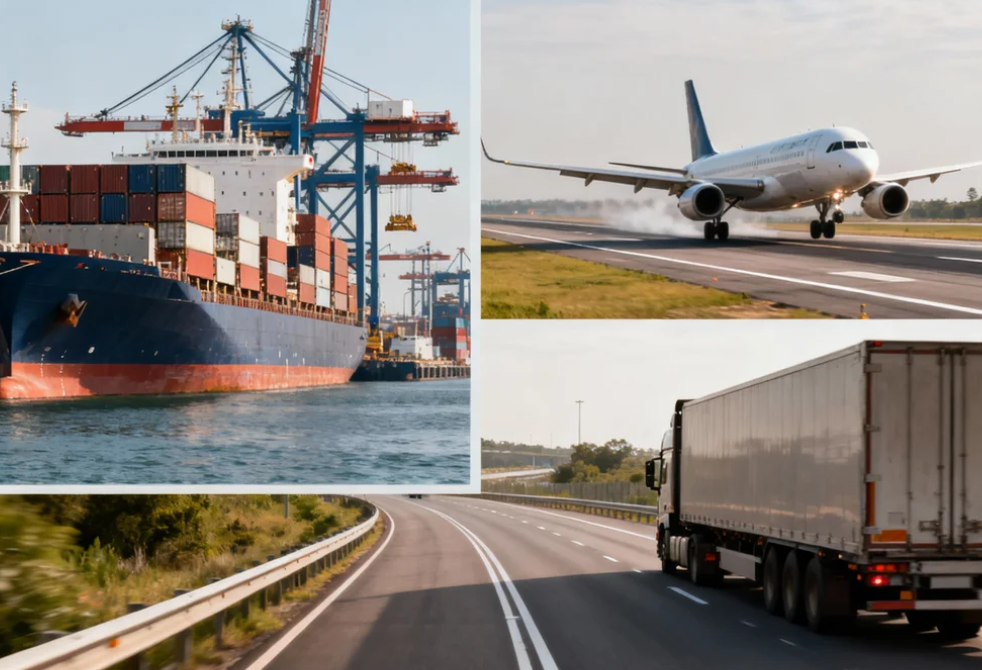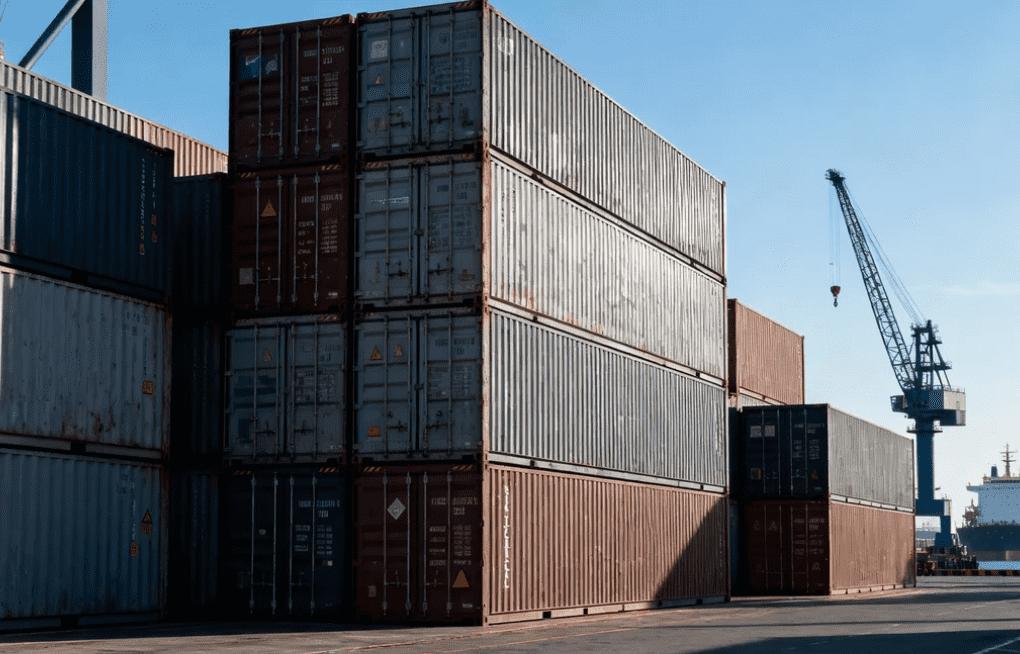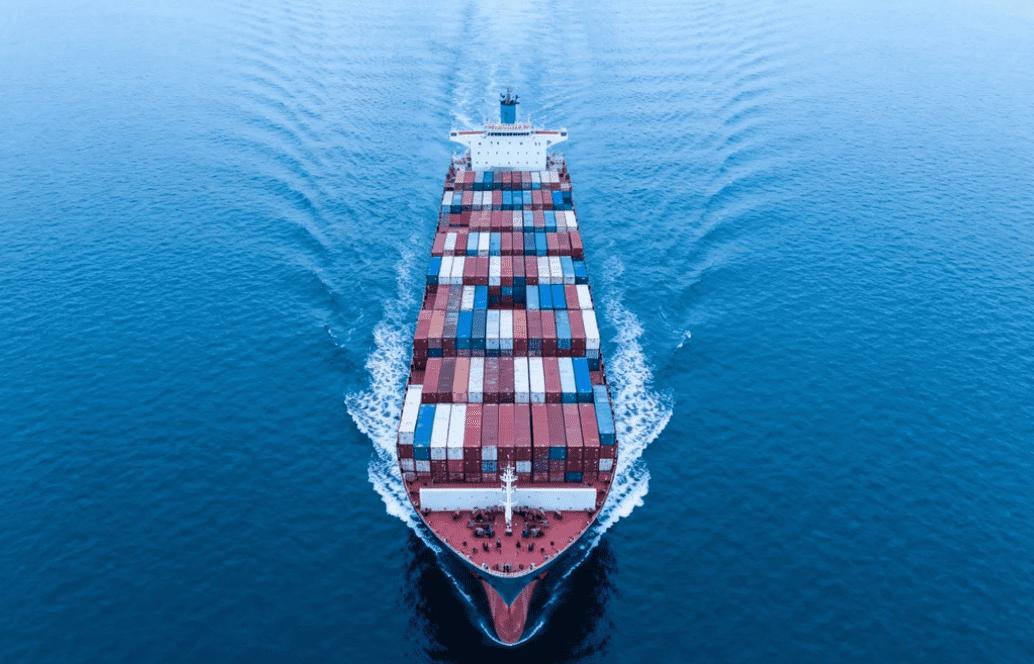Are you wondering, how long is freight from China to the UK? The shipping times can vary significantly based on the method of transportation and various factors.
In this comprehensive guide, we will explore sea and air freight options, detailing the typical durations for Full Container Load (FCL) and Less Than Container Load (LCL) shipments. Additionally, we’ll address customs clearance delays and seasonal impacts, as well as provide valuable tips to optimize your shipping process. Let’s dive in and uncover the essential insights for your freight shipping needs!

Overview of Trade Relations between China and the UK
The trade relationship between China and the United Kingdom has evolved significantly over the years. As of 2023, China has become one of the UK’s largest trading partners, with bilateral trade reaching approximately $98.3 billion in 2024, according to the Office for National Statistics (ONS) in the UK. This strong trade partnership is driven by the exchange of goods such as electronics, machinery, textiles, and automotive products.
With a focus on sustainable and innovative trade practices, both countries are keen on boosting their economic ties further. The UK’s exit from the European Union has also led to a shift in trade routes, making China a crucial market for UK exporters and importers alike. As the demand for imported goods from China continues to rise, understanding the intricacies of freight shipping between these two nations becomes increasingly important for businesses looking to capitalize on this lucrative relationship. For detailed insights on specific shipping methods, businesses can explore Shipping From China to the United Kingdom.
Sea Freight Shipping Times from China to the UK
When considering freight shipping from China to the UK, sea freight is typically the most cost-effective option, especially for large shipments. It’s essential to understand the various shipping options available and their respective durations to make informed decisions.
Typical Duration for Full Container Load (FCL) Shipments
For Full Container Load (FCL) shipments, the average transit time from major ports in China such as Shanghai, Ningbo, and Shenzhen to notable UK ports like Felixstowe, London Gateway, and Liverpool generally ranges from 28 to 40 days. This duration can vary based on factors such as:
- Route chosen: Direct routes tend to be quicker, while those with transshipment may take longer.
- Vessel schedules: Depending on the shipping line and vessel availability, transit times may fluctuate. Businesses seeking more information can refer to what is lcl and fcl in shipping.
| Port of Departure | Port of Arrival | Average Transit Time (Days) |
|---|---|---|
| Shanghai | Felixstowe | 30-35 |
| Ningbo | London Gateway | 30-40 |
| Shenzhen | Liverpool | 28-35 |
Estimated Time for Less Than Container Load (LCL) Freight
Less Than Container Load (LCL) shipments are ideal for businesses that do not have enough cargo to fill a full container. The transit time for LCL shipments from China to the UK typically ranges from 35 to 50 days. This longer duration is due to additional handling and consolidation processes involved in LCL shipping.
Factors affecting LCL shipping times include:
- Consolidation processes: LCL shipments require additional time for cargo consolidation at the departure port before shipping.
- Volume and frequency of shipments: Depending on the demand and the shipping frequency, LCL shipping times may vary significantly.
| Port of Departure | Port of Arrival | Average Transit Time (Days) |
|---|---|---|
| Shanghai | Felixstowe | 40-45 |
| Ningbo | London Gateway | 40-50 |
| Shenzhen | Liverpool | 35-45 |
Understanding these shipping durations allows importers and exporters to better plan their logistics and inventory management, ensuring a smoother operation when conducting trade between China and the UK. For a seamless experience, consider partnering with a reliable freight forwarder, such as Dantful International Logistics, known for providing cost-effective and high-quality logistics services tailored to your needs. For more information about shipping logistics, businesses can check out Door to Door Shipping.
Read More:
- Shipping From China To Netherlands
- Shipping From China To Spain
- Shipping From China To Germany
- Shipping From China To France
- Shipping From China to Italy
- Shipping From China To Poland
- Shipping From China to United Kingdom
Air Freight Shipping Times from China to the UK
When importing goods from China to the UK, the choice of shipping method significantly impacts delivery times. Air freight is one of the fastest options available, making it ideal for urgent shipments. Below, we explore the average transit times associated with express and standard air freight.
Average Transit Times for Express Air Freight
Express air freight services are specifically designed for rapid delivery and typically cover the distance between China and the UK in a remarkably short timeframe. Generally, express air freight can take anywhere from 1 to 3 days from departure to arrival. Notably, major carriers such as DHL, FedEx, and UPS offer this service and guarantee swift transit.
| Service Type | Estimated Transit Time |
|---|---|
| Express Air Freight | 1 – 3 days |
This rapid service is ideal for high-value or time-sensitive items, ensuring they arrive quickly at their destination, thus minimizing downtime for businesses.
Standard Air Freight Delivery Timeframes
In contrast, standard air freight is a more economical option that still maintains a relatively quick delivery time. Standard air freight shipments from China to the UK usually take about 5 to 10 days, depending on various factors such as the specific airport of origin in China and the destination airport in the UK.
| Service Type | Estimated Transit Time |
|---|---|
| Standard Air Freight | 5 – 10 days |
This option is suitable for less urgent shipments that still require faster delivery than sea freight.
Additional Considerations Affecting Shipping Time
While understanding the expected transit times is crucial, several additional factors can influence the overall shipping duration when transporting goods from China to the UK.
Customs Clearance and Documentation Delays
One of the significant factors affecting shipping time is customs clearance. Upon arrival in the UK, all goods must go through the customs process, which can lead to potential delays. Accurate and complete documentation is vital to ensure a smooth clearance. Any discrepancies or missing paperwork can lead to increased inspection times, further delaying delivery.
To mitigate these delays, it is advisable to work closely with a competent freight forwarder like Dantful International Logistics, who can assist with the necessary customs documentation and facilitate a smoother clearance process.
Seasonal Impacts and Peak Shipping Times
Seasonal fluctuations can also impact shipping times. For example, the peak seasons, such as before major holidays (e.g., Christmas), typically see an increase in shipment volumes, leading to potential delays. During these peak times, air freight carriers may face capacity constraints, leading to longer transit times.
Conversely, off-peak seasons may offer quicker shipping times and more competitive rates. Thus, planning shipments during less busy periods can yield better results.
By taking into account these factors, importers can better prepare for the logistics involved in shipping from China to the UK. Effective planning, combined with the expertise of a reliable freight forwarder like Dantful International Logistics, can help to streamline the shipping process and ensure timely delivery of goods. For more information on shipping to the UK, check out Shipping From China to United Kingdom.
Tips for Reducing Shipping Time
Choosing the Right Freight Forwarder
Selecting the appropriate freight forwarder can significantly impact shipping times from China to the UK. When choosing a freight forwarder, consider their expertise in international logistics, network of carriers, and capability to navigate customs efficiently. A highly professional freight forwarder like Dantful International Logistics offers a one-stop solution with services including ocean freight, air freight, customs clearance, and more. By partnering with a reliable freight forwarder, you can ensure timely pickups, effective route planning, and proactive problem resolution, all of which contribute to minimizing shipping delays.
Optimizing Packaging and Shipment Size
Efficient packaging and optimization of shipment size can lead to considerable reductions in transit times. Ensuring that your goods are packaged securely and in a manner that maximizes space can facilitate quicker loading and unloading processes. Additionally, smaller, consolidated shipments can often move through the logistics network more swiftly than larger ones. When utilizing Less Than Container Load (LCL) services, it is imperative to ensure that your items are packed efficiently to minimize delays at the depot and during transit.
Leveraging Advanced Tracking and Logistics Technology
Utilizing advanced tracking and logistics technology is vital in today’s fast-paced shipping environment. Implementing a comprehensive tracking system allows you to monitor your shipment in real-time, providing visibility into potential delays and enabling proactive decision-making. Many freight forwarders, including Dantful International Logistics, offer state-of-the-art tracking solutions that integrate seamlessly with your logistics operations. This technology not only enhances communication between all parties involved but also helps in rapidly addressing any unexpected challenges during the transit process.
Comparing Shipping Options: Cost vs. Time
When considering shipping options from China to the UK, it is crucial to evaluate the trade-off between cost and time. Below is a comparison table outlining typical transit times and estimated costs for different shipping methods:
| Shipping Method | Estimated Transit Time | Estimated Cost |
|---|---|---|
| Air Freight (Express) | 3-5 days | Higher per kg |
| Air Freight (Standard) | 7-10 days | Moderate per kg |
| Ocean Freight (FCL) | 25-35 days | Lower per container |
| Ocean Freight (LCL) | 30-40 days | Variable per cbm |
Choosing between air freight and ocean freight depends on the urgency of your shipment and your budget. While air freight offers speed, it can be significantly more expensive compared to ocean freight, which is more cost-effective for larger shipments but requires a longer transit time.
In conclusion, by understanding your priorities and the various shipping options available, you can make informed decisions that align with your business needs, ensuring timely delivery while managing costs effectively. Partnering with a professional like Dantful International Logistics can further streamline the process, providing customized solutions that balance cost and efficiency.
Understanding Potential Delays in Shipping from China to the UK
Shipping goods from China to the UK is an essential part of global trade. However, it’s crucial to recognize that various factors can lead to potential delays in the shipping process. Understanding these factors can assist importers in planning their shipments more effectively.
Customs Clearance: One of the most significant sources of delay is the customs clearance process. Both Chinese and UK customs authorities require specific documentation and compliance checks. Missing or incorrectly filled forms can lead to significant delays. It is advisable to work with a professional freight forwarder like Dantful International Logistics, which specializes in customs clearance services, to ensure that all required documents are correctly prepared and submitted.
Weather Conditions: Adverse weather conditions can disrupt shipping schedules. Inclement weather such as storms or fog can delay both sea and air freight. Moreover, seasonal changes can also impact shipping routes and schedules. Monitoring weather forecasts and planning shipments around potential weather disruptions can mitigate this risk.
Port Congestion: Port congestion at either the departure or arrival ports can lead to unexpected delays. This issue is particularly prominent during peak shipping seasons or due to operational inefficiencies at the port. It’s advisable to keep abreast of port conditions and, where possible, to select less congested ports for shipping.
Supply Chain Disruptions: Global events, such as pandemics or geopolitical tensions, can affect the manufacturing and shipping process. For instance, recent disruptions due to the COVID-19 pandemic have shown how fragile supply chains can be, with factories shutting down and shipping routes being altered. Importers need to remain flexible and informed about global events that could impact their shipments.
Documentation and Compliance Issues: Each shipment must comply with specific regulations, including safety and quality standards. Any discrepancies in these documents can lead to delays. It is beneficial to work closely with your freight forwarder to ensure that all documentation aligns with both Chinese and UK regulations.
By understanding these potential delays, importers can take proactive measures to minimize disruptions and ensure a smoother shipping process.
Importance of Planning and Scheduling in Freight Shipping
Effective planning and scheduling are paramount in the freight shipping process between China and the UK. Proper planning not only reduces the risk of delays but also optimizes costs and enhances overall efficiency.
Advance Booking: Booking shipments in advance allows for better scheduling and planning. It provides the freight forwarder ample time to arrange for ocean freight, air freight, or any other logistics services needed. Early bookings can also help secure better rates and avoid peak season surcharges.
Selecting the Right Shipping Method: Depending on the urgency of your shipment, choosing between Full Container Load (FCL) and Less Than Container Load (LCL) options is crucial. FCL is typically faster but may not be cost-effective for smaller shipments. Conversely, LCL can save costs but has longer transit times. Assessing your specific needs will lead to better decision-making.
Optimizing Inventory Management: Planning shipments around inventory needs is vital for businesses. Understanding lead times for shipping from China to the UK enables companies to maintain adequate stock levels without over-ordering or under-ordering.
Utilizing Logistics Technology: Leveraging technology such as tracking systems and automated scheduling tools can enhance visibility throughout the shipping process. This ensures that all parties involved are informed about shipment status, enabling quicker responses to any potential issues.
Collaboration with Freight Forwarders: Working closely with a reliable freight forwarder like Dantful International Logistics can streamline planning and scheduling efforts. Their expertise in navigating shipping logistics can significantly reduce the burden on importers while ensuring adherence to timelines.
In summary, effective planning and scheduling are critical to minimizing delays and ensuring the smooth transit of goods from China to the UK. By considering these factors, importers can make informed decisions that will ultimately enhance their logistics operations.

Young Chiu is a seasoned logistics expert with over 15 years of experience in international freight forwarding and supply chain management. As CEO of Dantful International Logistics, Young is dedicated to providing valuable insights and practical advice to businesses navigating the complexities of global shipping.





















